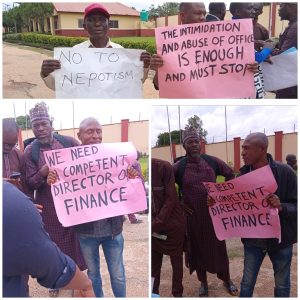Africa’s AI Dilemma: Strengthening Regulations to Protect Data Sovereignty
Artificial intelligence (AI) is transforming the world, but a pressing concern has emerged regarding the African continent’s data sovereignty. Experts warn that without robust regulations, Africa risks losing control over its data to foreign companies, potentially violating privacy rights and local laws. This urgent issue was discussed at the Nigeria Fintech Week in Lagos, where experts highlighted the need for stronger regulations to safeguard the continent’s data and sovereignty.
Ikem Isiekwena, Managing Director of Simmons Cooper Partners, cautioned against an “intelligence trap” where AI models, trained primarily on data from the global north, may leave Africa reliant on foreign technologies that fail to address its specific needs. He stressed that African contexts and narratives are underrepresented in the data driving AI, risking a new form of colonialism where foreign data shapes outcomes in Africa.
Isiekwena emphasized the importance of establishing a unified regulatory framework for AI across the continent, citing the fragmentation across African countries in terms of legal frameworks. “AI models are largely trained on data from the global north, making African contexts and narratives underrepresented. When our stories and contexts are missing from the data driving AI, we risk facing a new form of colonialism—one where foreign data shapes outcomes in Africa,” he warned.
Bola Adesina, Director of Bola Adesina Consulting, urged Africa to establish “legacy regulations” to avoid falling behind. “AI is not entirely new—it’s been around for decades. But what we are seeing today is a leap in user interface advancements, particularly driven by platforms like OpenAI, that make the technology more accessible and applicable. What we would have seen in the next 10 years is happening now,” Adesina said.
Adesina cautioned that Africa’s slow pace in ratifying AI-related policies could hinder its ability to fully harness the benefits of AI. She referenced the Malabo Convention, an African Union initiative on data protection that took more than seven years to ratify, as a case study of the continent’s regulatory delays.
Adeboye Adetoyese, Director of Maycode, also urged African governments to strengthen AI-related policies, particularly in the areas of data protection, ethics, and human rights. “Africa has the potential to leverage AI for significant economic and social gains, but only if we have robust policies in place,” he said.
The African Union’s recent approval of the Continental Artificial Intelligence Strategy aims to facilitate the adoption of AI in both public and private sectors across member states, including Nigeria. The strategy seeks to harness the transformative power of AI to drive economic, social, and geopolitical change in Africa.
Africa’s AI dilemma highlights the urgent need for stronger regulations to safeguard data sovereignty and ensure the continent can reap the benefits of AI, while minimizing risks to its privacy and security. The international community is watching Africa’s approach to this challenge, and the continent’s success in addressing it could have far-reaching implications for global AI governance.





